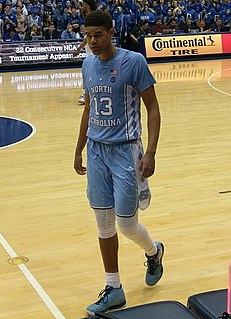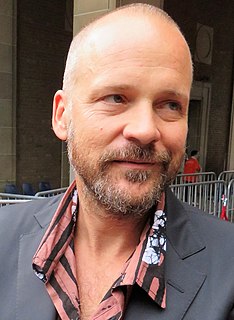A Quote by Gary Oldman
It's always hard when you're playing someone for a lot of people out there who are going to see the movie after reading the books. There's a communion between a reader and the writer, so people will have an idea who Sirius Black is and I might not be everyone's idea of that.
Related Quotes
A lot of people have a lot of things going on in their life. You'll be walking past ten people in the middle of the day and not even notice, but someone might have a family member that died, or someone might be going through a hard time. Sometimes you're the only person that someone might see that lifts them up.
Reading, therefore, is a co-production between writer and reader. The simplicity of this tool is astounding. So little, yet out of it whole worlds, eras, characters, continents, people never encountered before, people you wouldn’t care to sit next to in a train, people that don’t exist, places you’ve never visited, enigmatic fates, all come to life in the mind, painted into existence by the reader’s creative powers. In this way the creativity of the writer calls up the creativity of the reader. Reading is never passive.
When I have an idea, I share it with everyone. People say someone will steal my idea, but it's not like I invented something that will replace the toilet. I tell people to get their feedback. Will they buy it, help me improve it, or tell me it's already been done? If someone else is excited, he or she might buy into the business.
It is very hard to enroll people in anything. And there is a very big difference between the words motivate and inspire. Motivation means we have an idea and we are going to carry through on that idea. We work hard at it, and we are disciplined. A highly motivated person takes an idea, goes out there, and won't let anybody interfere with them. Inspiration is exactly the opposite. If motivation is when you get hold of an idea and carry it through to its conclusion, inspiration is the reverse. An idea gets hold of you and carries you where you are intended to go.
I love the movies, and when I go to see a movie that's been made from one of my books, I know that it isn't going to be exactly like my novel because a lot of other people have interpreted it. But I also know it has an idea that I'll like because that idea occurred to me, and I spent a year, or a year and a half of my life working on it.
We must be forewarned that only rarely does a text easily lend itself to the reader's curiosity... the reading of a text is a transaction between the reader and the text, which mediates the encounter between the reader and writer. It is a composition between the reader and the writer in which the reader "rewrites" the text making a determined effort not to betray the author's spirit.
I do find that people are incredibly naive about what it is to be a writer. Like you would pay an incredible amount of money for an MFA program and still not have the slightest idea of how one goes about becoming a writer. So, I'm always flabbergasted when people say, "Oh, I was invited to do a reading, but I'm not going to read because I don't have a book.".
That underscored this idea that when we're reading a book or writing a book, you're in an act of co-creation. The reader and the writer are both trying to dress up and present their best selves and then there's that moment, when suddenly, as a reader, you're not exactly you anymore, and likewise, as a writer, you're not really you.
I mean I don't think it got me interested in acting. I think it might be what makes it so that I can have the idea of the variety of people in the world, different incomes. That helps. When you're going to play someone it's interesting and nice to see experiences that aren't like yours. But there's always the remarkable similarity of all people.
It is easier for the reader to judge, by a thousand times, than for the writer to invent. The writer must summon his Idea out of nowhere, and his characters out of nothing, and catch words as they fly, and nail them to the page. The reader has something to go by and somewhere to start from, given to him freely and with great generosity by the writer. And still the reader feels free to find fault.




































